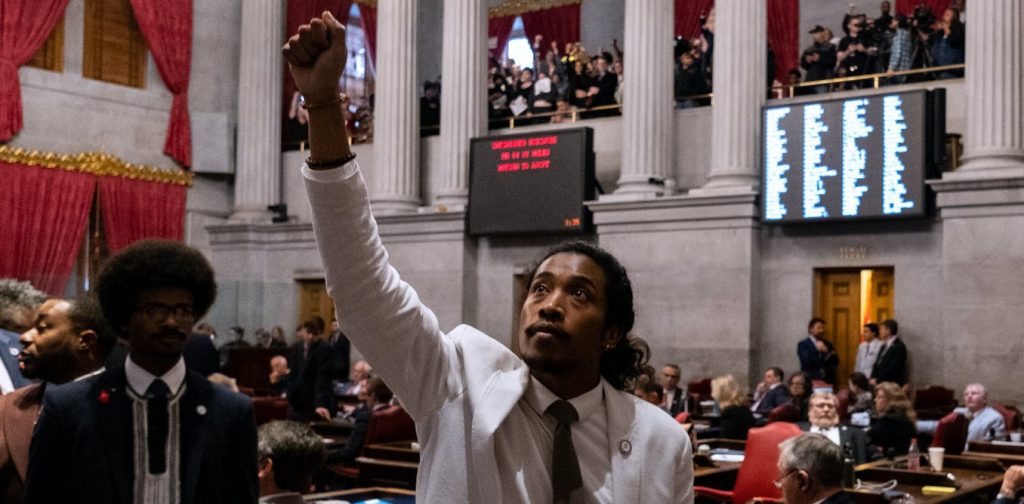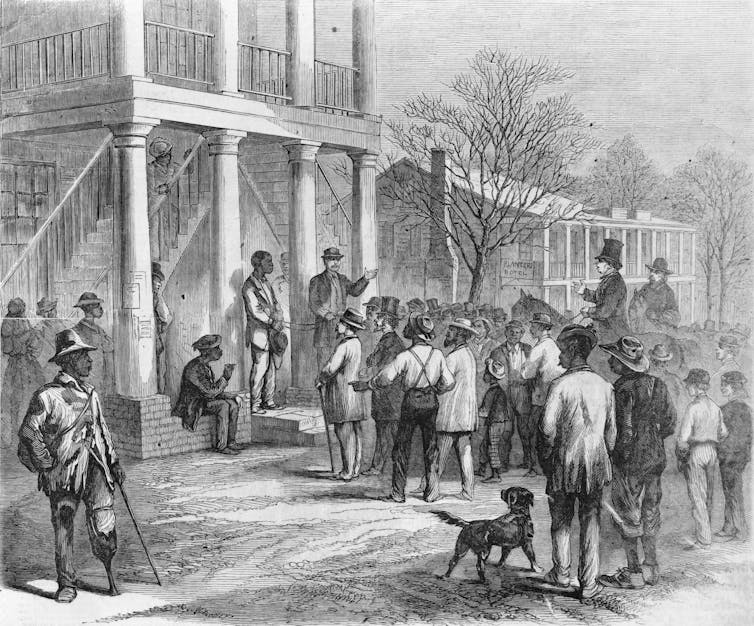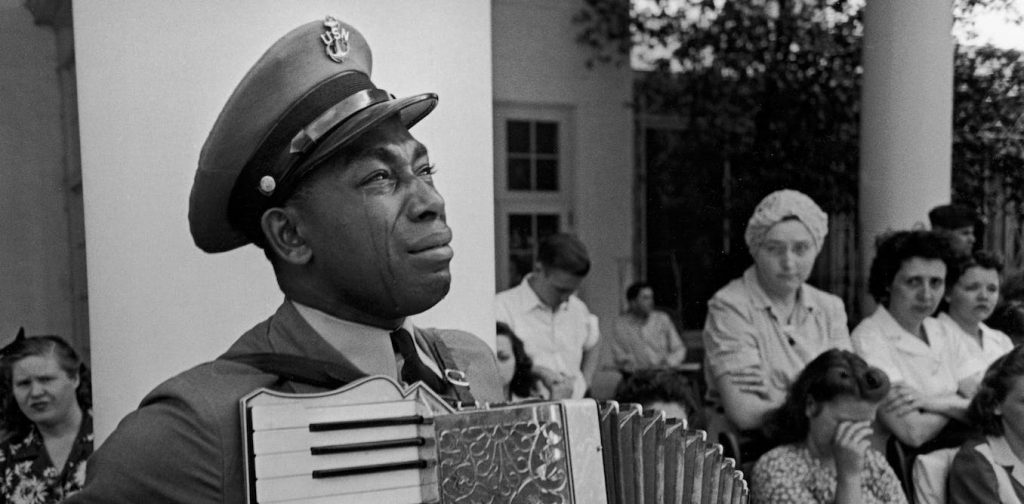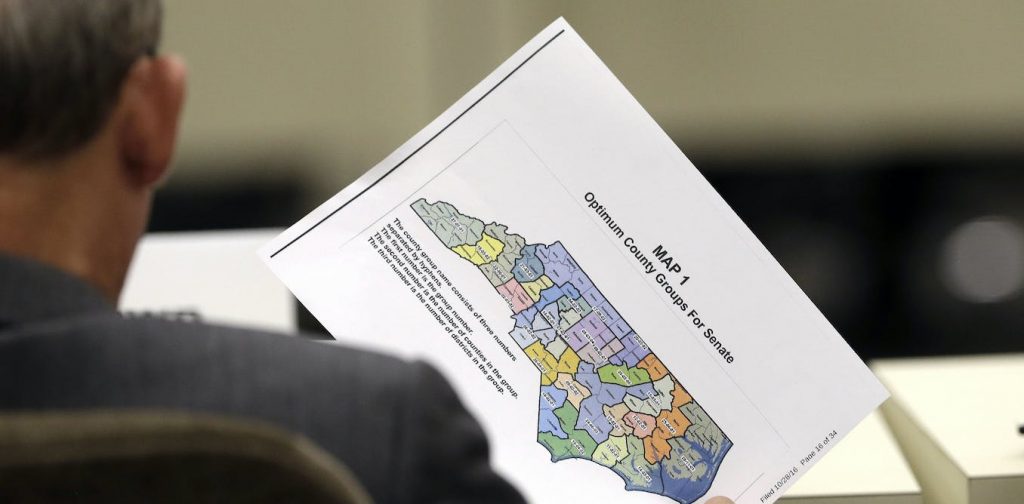US has a long history of state lawmakers silencing elected Black officials and taking power from their constituents


Mississippi legislators have enacted a law that would create a new judicial system covering the state’s capital city, Jackson, in place of the current county court system.
Set to take effect July 1, 2023, the move by a Republican-dominated legislature has been criticized by opponents as creating a “separate and unequal” court system that is not answerable to the majority-Black community it would seek to govern.
The law was justified by supporters as an effort to curb the city’s crime level, which includes one of the highest murder rates in the nation. But the move is the second time in as many months that state legislatures have taken highly visible actions to effectively disenfranchise Black voters: On April 6, the Tennessee House of Representatives expelled two Black members who represented mostly Black districts.
As a sociologist who studies race and ethnicity, I have closely followed these moves by the states. Throughout U.S. history, I see three main periods of legislative disenfranchisement in which legislative bodies have voted to expel members. These events have been shown to be a form of “white backlash” working to keep Black officeholders out of power and their constituents powerless without representation.
Reconstruction and legislative disenfranchisement
After the Civil War, the United States engaged in a brief period known as Reconstruction, which lasted from 1865 to 1877. It was a deliberate attempt to reverse the negative effects and legacies of slavery by enacting economic, political and social policies that directly benefited the formerly enslaved Black people of the South.
The efforts included formally abolishing slavery nationwide, guaranteeing equal protection of the laws to everyone regardless of race, and allowing formerly enslaved people to vote. In addition, formerly Confederate land was set aside for newly freed Black families, and former Confederate soldiers were not allowed to vote.
But after Tennessee politician Andrew Johnson, who had been Abraham Lincoln’s running mate in 1864, took office upon Lincoln’s assassination, many of those provisions of Reconstruction were reversed. Former Confederate combatants were allowed to vote, and confiscated Confederate property was returned to its prewar owners.
In addition, Johnson and Congress made it easier for defeated Confederate states to rejoin the Union, which allowed former Confederate leaders to regain their previous positions of power in local and national governments.
Georgia was originally readmitted to the Union in July 1868. But just two months later, in September, the Democratically controlled Georgia Assembly, with a total of 196 members, voted to expel all 33 of its Black elected officials.
Immediately upon making themselves into an all-white legislature, the remaining assembly members enacted the infamous Black Codes. These codes created a unique set of laws specific to the newly freed Blacks, including limiting the types of work they could do.
Collectively, the legislative expulsion of the Black officials and the imposition of the Black Codes served to effectively disenfranchise the Black voters of Georgia. Senator Henry McNeal Turner, one of those expelled, defiantly asked: “Am I a man? If I am such, I claim the rights of a man.”
 Under the Black Codes, which were restrictive laws in the post-Reconstruction South, a Black person could be sold into what was effectively a new version of slavery if they could not repay fines or debts. Interim Archives/Getty Images
Under the Black Codes, which were restrictive laws in the post-Reconstruction South, a Black person could be sold into what was effectively a new version of slavery if they could not repay fines or debts. Interim Archives/Getty Images
The civil rights era
Another major effort to disenfranchise Black Americans came during their next major push to achieve political, social and economic equality: the Civil Rights Movement of the 1950s and 1960s. Opponents targeted two prominent civil rights activists who had been elected to represent their communities: Adam Clayton Powell Jr. and Julian Bond.
Bond was elected as a Democrat to the Georgia House of Representatives in 1965, but on Jan. 10, 1966, the Democratically controlled House voted not to seat him, citing his criticism of U.S. involvement in Vietnam and support of students who were protesting the war. A year later, the U.S. Supreme Court unanimously ruled that Bond’s First Amendment rights had been violated and ordered that he be seated. But for that intervening year, his constituents had no voice in their state legislature. Bond ultimately served in the Georgia legislature for another two decades, before turning to teaching and activism.
Powell’s situation was different. He was the first African American to be elected to Congress from New York and from any state in the Northeast. Starting in 1945, he represented the district that included the majority-Black Harlem neighborhood of New York City. He became one of the most important Democrats in the House, but in the mid-1960s, he found himself embroiled in personal and financial scandals.
After the election of 1966, the House created a committee to investigate Powell’s actions and refused to seat him until the committee’s report was complete. The report found fault, but committee members were split on the proper discipline for Powell. Ultimately the whole House voted to keep him out.
Powell sued to reclaim his seat, saying the House had excluded him unconstitutionally. He also won the special election in April 1967 created by the vacancy but didn’t take his seat because of the lawsuit. The removal of Powell meant that Harlem was the only congressional district in the nation without a representative from 1967 to 1969.
In 1969, the U.S. Supreme Court ruled that the House had acted unconstitutionally by refusing to seat Powell. By then, Powell had also won the 1968 regularly scheduled election and had been seated, though without the seniority and committee positions that would normally have been given to someone who had continuously been a House member.
Black Lives Matter movement
In the aftermath of the George Floyd killing, a new social movement emerged across the United States. With this new activism came another “white backlash” in the form of legislative disenfranchisement.
In May 2022, Tiara Young Hudson, a long-serving Black public defender, won the Democratic primary for a judgeship in Jefferson County, Alabama. More than half of the county’s population is nonwhite. Facing no opposition in the general election, she was expected to win and take office.
But two weeks after the primary, a state judicial commission, divided along racial lines, eliminated the position she was a candidate for and created a new judgeship in the majority-white Madison County.
Hudson immediately sued to block the shift, saying it violated the Alabama Constitution and only the state legislature had the authority to reallocate judgeships. In March 2023, the state supreme court dismissed Hudson’s complaint, effectively stripping the Black people of Jefferson County of a representative they had elected to be their voice on the state’s roster of judges.
And on April 6, 2023, the Republican majority of the Tennessee House of Representatives voted to expel two Black legislators – Justin Pearson and Justin Jones – for participating in a protest calling for gun legislation following yet another mass shooting.
Within days, both Pearson and Jones had been temporarily reinstated by processes for filling vacant seats, but still face special elections to fully reclaim their seats. Their alleged violation was participating in a protest against the legislature’s rules – but their real violation, I believe, was that they were Black, outspoken and pushed for change.





